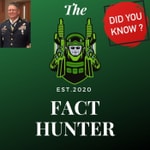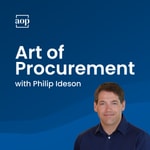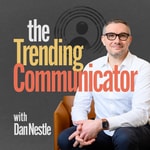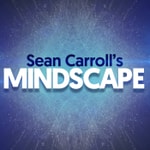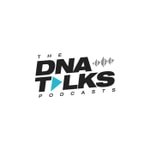Outthinkers – Détails, épisodes et analyse
Détails du podcast
Informations techniques et générales issues du flux RSS du podcast.
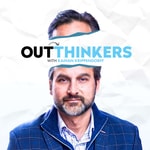
Outthinkers
Outthinker
Fréquence : 1 épisode/11j. Total Éps: 150

The Outthinkers podcast is a growth strategy podcast hosted by Kaihan Krippendorff. Each week, Kaihan talks with forward-looking strategists and innovators that are challenging the status quo, leading the future of business, and shaping our world.
Chief strategy officers and executives can learn more and join the Outthinker community at https://outthinkernetwork.com/.
Classements récents
Dernières positions dans les classements Apple Podcasts et Spotify.
Apple Podcasts
🇬🇧 Grande Bretagne - management
21/07/2025#71🇨🇦 Canada - management
16/07/2025#85🇨🇦 Canada - management
15/07/2025#50🇬🇧 Grande Bretagne - management
26/06/2025#68🇬🇧 Grande Bretagne - management
25/06/2025#37🇬🇧 Grande Bretagne - management
24/06/2025#34🇨🇦 Canada - management
08/04/2025#53🇨🇦 Canada - management
04/04/2025#94🇬🇧 Grande Bretagne - management
07/01/2025#88🇬🇧 Grande Bretagne - management
30/12/2024#43
Spotify
Aucun classement récent disponible
Liens partagés entre épisodes et podcasts
Liens présents dans les descriptions d'épisodes et autres podcasts les utilisant également.
See all- https://www.shrm.org/
271 partages
- https://www.bcg.com/
69 partages
- https://www.strategyzer.com/
46 partages
- https://www.linkedin.com
233 partages
- https://www.linkedin.com/in/daveulrichpro/
36 partages
- https://www.linkedin.com/in/fgpferdt/
24 partages
- https://twitter.com/Tiffani_Bova
292 partages
- https://twitter.com/salimismail
24 partages
- https://twitter.com/JBoorstin
16 partages
Qualité et score du flux RSS
Évaluation technique de la qualité et de la structure du flux RSS.
See allScore global : 63%
Historique des publications
Répartition mensuelle des publications d'épisodes au fil des années.
#124—Brian Evergreen: Beyond Digital—The Era of Autonomous Transformation
Saison 1 · Épisode 124
vendredi 6 septembre 2024 • Durée 34:52
Brian Evergreen, author of Autonomous Transformation: Creating a More Human Future in the Era of Artificial Intelligence, named a Next Big Idea “Must-Read” and for which Brian was shortlisted for the 2023 Thinkers50 Breakthrough Idea Award.
Building on his experiences working at Accenture, Amazon Web Services, and Microsoft, Brian advises and speaks to organizations around the world, guest lectures at Purdue University and the Kellogg School of Management, sharing the unconventional and innovative methods and frameworks he developed leading and advising Digital Transformation initiatives at many of the world's most valuable companies. There are very few people in the world who has had as much experience of Brian facilitating strategic conversations that lead to big, breakthrough ideas.
At the core of Brian’s ideas is that in this age of accelerated AI, there is not only room for—but a dire need for human reasoning to remain a core component of business strategy in what he calls “autonomous transformation,” which contrast with and complements what we all call digital transformation.
In this podcast, he shares:
- The differences between transformation, reformation and creation — and when each is best employed given the presence of key criteria
- His "reason-driven Framework," which in contrast to data-driven frameworks, allow the space and opportunity for human experimentation, learning, and innovation
- The critical difference between digital transformation (moving from analog to digital) and autonomous transformation, which encompasses systems that autonomously handle processes and make decisions, emphasizing that transformation should create value, not just imply digital changes
_____________________________________________________________________________
Episode Timeline:
00:00—Highlight from today's episode
1:09—Introducing Brian + the topic of today’s episode
2:56—If you really know me, you know that...
3:29— How chess shaped Brian's approach to strategy
04:49— Defining strategy: a decision tree framework
05:56— Challenges of strategy implementation in organizations
06:58— Reformation vs. transformation, the key differences
09:17— Knowing when to build from scratch
11:24— Reason driven framework for strategic decision making
14:16— Data vs. reason: Why reason driven decision making is crucial
24:22— Steps of the reason-driven framework
28:48— Digital vs. autonomous transformation
33:43—Solving for the future
_______________________________________________________________________________________
Additional Resources:
Link to personal website: www.brianevergreen.com
Link to book: Autonomous Transformation: Creating a More Human Future in the Era of Artificial Intelligence
LinkedIn: www.linkedin.com/in/brianevergreen/
Thank you to our guests, thank you to our executive producer, Karina Reyes, our editor, Zach Ness, and the rest of the team. If you like what you heard, please follow, download, and subscribe. I'm your host, Kaihan Krippendorff. Thank you for listening.
Follow us at outthinkernetworks.com/podcast
#123—Christina Alaimo: The Hidden History of Data and its Role in Modern Strategy
Épisode 123
vendredi 9 août 2024 • Durée 40:00
Cristina Alaimo, is the Assistant Professor of Digital Economy and Society at Guido Carli University in Rome, Italy and soon to be Associate Professor at ESSEC Business School in France.
Her research focuses on innovation catalyzed by data-based services and the consequences it has on organizations and society. Cristina also studies the broader ecosystem of data exchanges in which digital platforms are embedded and how these new platform ecosystems emerge and evolve.
In her recently released book, DATA RULES: Reinventing the Market Economy, Cristina and her co-author Jannis Kallinikos, dive deep into the unprecedented social and economic restructuring brought about by data.
In this episode, we discuss:
- The fascinating history and role of data in our society—well before even the tech boom, with its origins in writing itself
- How many of the social constructions that we know of, even our own digital identities, are shaped and created by data
- The four functions of data—and how business ecosystems are evolving the traditional functions to create new business models and value chains
- What business leaders need to know to seize the new opportunities the evolution of data is creating, even breaking out of the traditional concepts of industries of business as we know it today
_______________________________________________________________________________
Episode Timeline:
00:00—Highlight from today's episode
1:01—Introducing Cristina + the topic of today’s episode
2:55—If you really know me, you know that...
3:48—What's your definition of strategy?
04:52—The historical function of data
08:40—The link between data and institutions
11:55—The interrelation between data and writing
15:12—The four functions of data
18:08—The data making process
22:43—Data's impact on ecosystems and platforms
26:38—TripAdvisor case study
30:25—Redefining industry concepts
33:02—Future of competitive advantage
37:44—How can people follow you and continue learning from you?
_______________________________________________________________________________________
Additional Resources:
Link to book: DATA RULES: Reinventing the Market Economy
LinkedIn: https://www.linkedin.com/in/cristinaalaimo/
X: https://x.com/cristina_alaimo
Thank you to our guests, thank you to our executive producer, Karina Reyes, our editor, Zach Ness, and the rest of the team. If you like what you heard, please follow, download, and subscribe. I'm your host, Kaihan Krippendorff. Thank you for listening.
Follow us at outthinkernetworks.com/podcast
#114—John Winsor: Unveiling the Potential of Open Talent
Saison 1 · Épisode 114
vendredi 5 avril 2024 • Durée 31:35
John Winsor is a prominent figure in strategic marketing and product innovation, known for his deep understanding of future work trends and open talent strategies. His
expertise in collaboration, co-creation, and open innovation has made him a key
influencer in innovation, disruption, and storytelling. He founded and chairs Open
Assembly, an organization pioneering the adoption of open talent and freelancing.
At Harvard Business School's Laboratory for Innovation Science (LISH), as an
executive-in-residence, Winsor significantly promotes innovation. He co-authored the
national best-selling book Open Talent: Leveraging a Global Workforce to Solve Your
Biggest Challenges with Laboratory for Innovation Sciences at Harvard co-founders Jin Paik, published by Harvard Business Press in January 2024. Additionally, Winsor leads the Open Assembly Community, a global network of 4000 members focused on
transforming workplaces worldwide.
In this conversation, we dive deep into concepts from Open Talent: Leveraging a Global Workforce to Solve Your Biggest Challenges, John’s most recent co-authored and national best-selling book with Jin Paik, published by Harvard Business Press in January 2024.
We discuss the intricate layers of the modern workforce, including:
- The rapid shift of the workforce culture, with the rise of micro-entrepreneurs and freelancers at the core, transforming industries
- The democratization of talent through digital platforms that provides companies a more varied, diverse workforce while providing individuals more opportunities for work
- A growing shift away from traditional roles and jobs, towards a focus on tasks and skills to achieve desired outcomes, with an emphasis on speed and momentum given today’s fast-paced momentum
- How to break through the mental and organizational barriers that impede them from embracing new workforce paradigms to fully take advantage of the modern workforce reality
___________________________________________________________________________________
Episode Timeline:
00:00—Highlight from today's episode
1:04—Introducing John Winsor + the topic of today’s episode
3:18—If you really know me, you know that...
4:24—What's your definition of strategy?
6:56—Using strategy to move things in your favor?
11:35—How Open Talent differs from gig work
15:44—Is the talent power shift permanent?
18:24— How is technology transforming talent acquisition?
21:52—Overcoming mental barriers to embrace Open Talent
26:14—The economic benefits of variable workforce costs
28:01—Why innovation is vital for survival
30:08—How can people follow you and continue learning from you?
__________________________________________________________________________________________
Additional Resources:
Personal site: https://johnwinsor.com
Book site: Open Talent: Leveraging a Global Workforce to Solve Your
Biggest Challenges
LinkedIn: https://www.linkedin.com/in/johntwinsor/
Twitter: https://twitter.com/jtwinsor
Thank you to our guests, thank you to our executive producer, Karina Reyes, our editor, Zach Ness, and the rest of the team. If you like what you heard, please follow, download, and subscribe. I'm your host, Kaihan Krippendorff. Thank you for listening.
Follow us at outthinkernetworks.com/podcast
#27—Michael Tushman: Why Ambidextrous Organizations Outperform Others
Épisode 27
vendredi 5 novembre 2021 • Durée 20:28
Michael Tushman is a Baker Foundation Professor, Paul R Lawrence Professor Emeritus, and faculty chair of the Advanced Management Program (AMP) at Harvard Business School. He is also a founding director of Change Logic, a Boston-based strategic advisory firm.
Michael is internationally recognized for his work on the relations between technological change, executive leadership and organization adaptation, and for his work on innovation streams and organization design. Mike is an active business consultant and educator, working with CEOs and senior teams around the world.
Mike leads several Harvard Business School's premier learning opportunities for executives. In addition to AMP, he is faculty co-chair of Leading Change and Organizational Renewal and is a former Faculty Chair for the Professional Leadership Development Program. He also teaches on the Business Analytics Program, HBS’s first online only program.
Mike’s publications include Lead and Disrupt, Winning Through Innovation: A Practical Guide to Leading Organizational Renewal and Change, both with Charles O’Reilly; and Corporate Explorer: how corporates beat startups at the innovation game with Andy Binns.
In this podcast he shares:
- How to structure a company so it can simultaneously exploit your current business and explore new businesses
- The definition of an ambidextrous organization
- Why it's so critical that you think about your firm's “identity” and purpose
- And why the greatest barrier to your ability to innovate may be dealing with “identity threats”
__________________________________________________________________________________________
"My experience with ambidexterity is the structure is pretty trivial. You just put the past in the future. Oftentimes the reason that ambidextrous structures fail is that the senior team cannot deal with the paradox and tensions and contradictions associated with both exploiting and exploring simultaneously. So I would beg the strategy types in the room to help your colleagues attend to inconsistent strategies simultaneously in service of the overarching identity and help their colleagues deal with tension in the room is that is not there exploit always kills, explore."
-Michael Tushman
__________________________________________________________________________________________
Episode Timeline:
00:00—Introducing Michael Tushman + The topic of today’s episode
2:38—If you really know me, you know that...
2:01—What is your definition of strategy?
4:50—What are you most well-known for?
7:25—Could you explain to us the concept of an ambidextrous organization?
10:15—How do you find leaders that can manage the tension between exploit and explore?
15:40—Could you explain how explore companies differ in how they shape the context and rules?
16:50—Could you explain a little more about this identity conflict that companies experience?
19:18—What are you working on now and how should people connect with you?
__________________________________________________________________________________________
Additional Resources:
Faculty Page at HBS: https://www.hbs.edu/faculty/Pages/prof
Thank you to our guests, thank you to our executive producer, Karina Reyes, our editor, Zach Ness, and the rest of the team. If you like what you heard, please follow, download, and subscribe. I'm your host, Kaihan Krippendorff. Thank you for listening.
Follow us at outthinkernetworks.com/podcast
#26—Felix Oberholzer-Gee: Applying a Value-Based Strategy to Drive Your Business
Épisode 26
vendredi 29 octobre 2021 • Durée 24:24
Felix Oberholzer-Gee is the Andreas Andresen Professor of Business Administration at Harvard Business School. An award-winning instructor, his academic work has been published in the very best, peer-reviewed journals of his profession. He currently teaches competitive strategy in executive education programs such as the Harvard General Management Program. He also serves as faculty chair of the Senior Executive Leadership Program for China and the Driving Digital Strategy program. He is a cohost of the popular HBR Presents podcast, After Hours.
His most recent book Better, Simpler Strategy, Felix is one of the most compelling, complete, and yet, simple strategy books out there. He shows how successful companies that appear to be in very similar businesses – say Home Depot and Lowes - dramatically outperform their rivals. At a time when rapid technological change and global competition conspire to upend traditional ways of doing business, these companies pursue radically simplified strategies focused on value.
In this podcast he shares:
- Why focusing on differentiating our value proposition for customers misses half of the opportunity (we should be equally focused on employees and suppliers).
- Why we so often confuse “complements” with “substitutes”—for example, we thought music streaming would kill the music business, but it actually had the opposite effect.
- A simple, immediately-actionable framework design a strategy that maximized the value of your firm.
__________________________________________________________________________________________
"There are two key ideas: One is value creation for customers, and that is just ways to increase willingness to pay for your customers. Willingness to pay is the most a customer would ever be willing to pay for a product or a service. We want to make sure that we do the kinds of things that increase value where value is the difference between willingness to pay the most the customer is willing to pay verses the actual price for a better camera in your smart phone, and the actual price that we charge."
-Felix Oberholzer-Gee
__________________________________________________________________________________________
Episode Timeline:
00:00—Introducing Felix Oberholzer-Gee + The topic of today’s episode
1:54—If you really know me, you know that...
2:01—What is your definition of strategy?
3:22—What are you most well-known for?
5:18—Could you walk us through your framework of what value-based strategy is?
10:15—Differentiating your offer to increase willingness to pay
13:10—What is the right amount of value to capture?
17:40—What is a favorite framework or tool you have?
19:50—Applying the value of differentiation to more than just marketing
23:00—How should people connect with you?
__________________________________________________________________________________________
Additional Resources:
Faculty Page at HBS: https://www.hbs.edu/faculty/Pages/profile.aspx?facId=251462
LinkedIn: https://www.linkedin.com/in/feli
Thank you to our guests, thank you to our executive producer, Karina Reyes, our editor, Zach Ness, and the rest of the team. If you like what you heard, please follow, download, and subscribe. I'm your host, Kaihan Krippendorff. Thank you for listening.
Follow us at outthinkernetworks.com/podcast
#25—Liz Wiseman: Unleashing the Talents of Your Company's 'Impact Players'
Épisode 25
vendredi 22 octobre 2021 • Durée 22:33
Liz Wiseman is a researcher and executive advisor who teaches leadership to executives around the world. I first met her in 2010 when she had just published her New York Times bestseller Multipliers: How the Best Leaders Make Everyone Smarter. I’ve been following her work since, as she published The Multiplier Effect and Wall Street Journal bestseller Rookie Smarts. In this podcast we are going to dig into her latest book, Impact Players: How to Take the Lead, Play Bigger, and Multiply Your Impact.
Liz is the CEO of the Wiseman Group, a leadership research and development firm headquartered in Silicon Valley, California. Some of her recent clients include: Apple, AT&T, Disney, Facebook, Google, Microsoft, Nike, Salesforce, Tesla, and Twitter. Liz has been listed on the Thinkers50 ranking and in 2019 was recognized as the top leadership thinker in the world.
She has conducted significant research in the field of leadership and collective intelligence and writes for Harvard Business Review, Fortune, and a variety of other business and leadership journals. She is a frequent guest lecturer at BYU and Stanford University and is a former executive at Oracle Corporation, where she worked as the Vice President of Oracle University and as the global leader for Human Resource Development.
Have you every found yourself in a situation in which you are working hard, feeling overwhelmed, but you realize you are spinning your wheels and not actually having impact? Yet, somehow, there is that person on your team who is able to avoid the distractions, focus on the right things, and make a breakthrough impact?
These are called impact players, and Liz has dedicated her last years of research into discovering what makes them unique.
In this podcast she shares:
- What impact players are, and how they differ from others
- Secrets of these stellar professionals drawn from a two-year study
- The five mindsets of impact players
__________________________________________________________________________________________
"In the process of studying leadership and trying to teach this, I came to this realization, and if I've learned anything in my research, it is this: It's not about leadership; it's about contributor-ship. And that is, that people come to work every day desperately wanting to contribute everything they have. When people talk about the experience working for a diminishing leader, they're like, "It was painful, and it was exhausting." Being only able to give 50% of your know-how and capability was exhausting, and demoralizing."
-Liz Wiseman
__________________________________________________________________________________________
Episode Timeline:
00:00—Introducing Liz Wiseman+ The topic of today’s episode
2:50—If you really know me, you know that...
3:30—What is your definition of strategy?
4:22—What are you most well-known for?
6:09—Could you give us an example of a habit a diminisher might exhibit unconsciously?
8:33—Why did you choose "impact players" as your next area of research?
11:01—Clarifying the five practices of impact players
12:20—Figuring out the "job to be done"
13:03—Impact players step up and lead
14:52—Moving things across the finish
16:18—Learning and ada
Thank you to our guests, thank you to our executive producer, Karina Reyes, our editor, Zach Ness, and the rest of the team. If you like what you heard, please follow, download, and subscribe. I'm your host, Kaihan Krippendorff. Thank you for listening.
Follow us at outthinkernetworks.com/podcast
#24—Johnny C. Taylor, Jr.: Trends You Need to Know About the Workforce
Épisode 24
vendredi 15 octobre 2021 • Durée 19:46
Johnny C. Taylor, Jr., is President and Chief Executive Officer of SHRM, the Society for Human Resource Management. With over 300,000 members in 165 countries, SHRM is the largest HR professional association in the world, impacting the lives of 115 million workers every day.
As a global leader on the future of employment, culture and leadership, Johnny is a sought-after voice on all matters affecting work, workers and the workplace. He is frequently asked to testify before congress on critical workforce issues and authors the weekly USA Today column, "Ask HR."
Johnny’s career spans over 20 years as a lawyer, human resources executive and CEO in both the not-for-profit and for-profit space. He has held senior and chief executive roles at IAC/Interactive Corp, Viacom's Paramount Pictures, Blockbuster Entertainment Group, the McGuireWoods law firm, and Compass Group USA.
He was appointed chairman of the President's Advisory Board on Historically Black Colleges and Universities and served as a member of the White House American Workforce Policy Advisory Board during the Trump Administration.
In this episode, it's worth nothing that all of his projections are fact-based, not conjecture, built on a large database of employment data SHRM has been collecting for decades.
In this podcast he shares:
- Some fascinating, counterintuitive insights about Generation Z. Hint: They actually care a lot about money.
- A breakdown of the macro policy structural barriers that are going to have to be removed if organizations are going to create workplaces that will work in the future
- Practical, first steps CEOs, Strategists, and leaders can take to begin resetting their culture
__________________________________________________________________________________________
"I have a shorthand definition of what culture is, and it's how things really work around here. How things get done, not how they should or how you want them to. So number one, and just practical thing I would say to anyone listening is you've got to sit down and you've got to engage in introspection."
-Johnny C. Taylor, Jr.
__________________________________________________________________________________________
Episode Timeline:
00:00—Introducing Johnny C. Taylor, Jr. + The topic of today’s episode
2:28—If you really know me, you know that...
2:47—What is your definition of strategy?
3:47—Is strategy changing in nature to being made more spontaneously and spread out, and what's causing it?
6:02—What are the top one or two shifts in strategy that a strategist or CEO needs to be thinking about?
8:44—How would you characterize how Gen Z is different in the way they think about work?
12:00—What can strategists and CEOs to rethink the way that the definition or a 'worker' is changing?
15:01—How can a strategist or CEO if their company needs a cultural reset?
16:42—Among all the frameworks on culture, what's your go-to first step or driver in shifting culture?
18:42—How can people connect and keep learning from you?
__________________________________________________________________________________________
Additional Resources:
SHRM Website: https://www.shrm.org/
Thank you to our guests, thank you to our executive producer, Karina Reyes, our editor, Zach Ness, and the rest of the team. If you like what you heard, please follow, download, and subscribe. I'm your host, Kaihan Krippendorff. Thank you for listening.
Follow us at outthinkernetworks.com/podcast
#23—Pete Fader: Becoming a Customer-Centric Business
Épisode 23
vendredi 8 octobre 2021 • Durée 21:02
Pete Fader is the Frances and Pei-Yuan Chia Professor of Marketing at The Wharton School of the University of Pennsylvania. His expertise centers around the analysis of behavioral data to understand and forecast customer shopping and purchasing activities. He works with firms from a wide range of industries, including telecom, financial services, gaming/entertainment, retailing, and pharmaceuticals. He’s the author of Customer Centricity: Focus on the Right Customers for Strategic Advantage and co-authored The Customer Centricity Playbook with Sarah Toms.
Pete co-founded a predictive analytics firm (Zodiac) in 2015, which was sold to Nike in 2018. He then co-founded and continues to run Theta Equity Partners to commercialize his more recent work on “customer-based corporate valuation," a simple but powerful idea, that you can value any company by adding up the value of its individual customers.
He has won numerous awards for his research and teaching accomplishments. Among these achievements, he was named by Advertising Age as one of its inaugural “25 Marketing Technology Trailblazers” in 2017, and was the only academic on the list.
In this podcast he shares:
- What customer lifetime value is, and why it should be the central driver of your strategy
- A challenge to the idea that you should treat all customers equally well
- The first set of steps you should take to begin becoming a truly customer-centric business
__________________________________________________________________________________________
"Of the portfolio things we sell, here's the next thing that you should buy. That's not customer centricity. I mean, it can be if they love us, and they really do want to buy all of our things in sequence, but in a lot of cases, that's not the way it works. So it really is figuring out who are those valuable customers? And what are their broader wants and needs beyond just the stuff that we sell to them?"
-Pete Fader
__________________________________________________________________________________________
Episode Timeline:
00:00—Introducing Pete Fader + The topic of today’s episode
2:05—If you really know me, you know that...
2:38—What is your definition of strategy?
3:21—What are you most known for?
4:37—Could you define customer centricity?
6:00—What's a company that models being customer-centric well?
9:15—How do you identify who the most valuable customers are?
15:05—Can B2B companies apply these principles as well?
17:57—What's something that you've changed your mind about?
19:05—What last thoughts do you want to leave us with?
__________________________________________________________________________________________
Additional Resources:
Twitter: https://twitter.com/faderp
LinkedIn: https://www.linkedin.com › peterfader
Faculty Page: https://executiveeducation.wharton.upenn.edu/faculty/peter-fader/
Thank you to our guests, thank you to our executive producer, Karina Reyes, our editor, Zach Ness, and the rest of the team. If you like what you heard, please follow, download, and subscribe. I'm your host, Kaihan Krippendorff. Thank you for listening.
Follow us at outthinkernetworks.com/podcast
#22—Richard D'Aveni: Gaining Competitive Advantage—with TEMPORARY Advantages
Épisode 22
vendredi 1 octobre 2021 • Durée 19:26
Professor Richard D'Aveni is the Bakala Professor of Strategy at Dartmouth's Tuck School of Business. He is considered one of the premier competitive strategists of his time. His research looks for the winning competitive strategies used by corporations, governments, and militaries. He writes regularly for Harvard Business Review and Forbes and is a frequent commentator on strategic and technological developments. Fortune Magazine has described Professor D’Aveni as modern-day Sun-Tzu, the ancient Chinese master of the strategic arts. Marketing News says, “Today's Internet marketers’ worship at the competitive altar of D'Aveni.”
Thinkers50 awarded him its 2017 Strategy Award, and nominated him for the 2019 Breakthrough Ideas Award. He has since been inducted into the Thinkers50 Hall of Fame, along with Peter Drucker, Clay Christensen, and many other groundbreaking innovators. His diverse background includes a Ph.D. from Columbia University and a bachelor’s degree from Cornell University, as well as a law degree and MBA, bringing a unique perspective into business.
His most recent book, The Pan-Industrial Revolution, examined the impact of 3D printing on manufacturing, global competition, and society.
In this podcast he shares:
- The idea that most of us are grossly underestimating the impact of 3D printing on business and global economy
- An argument for why in the near future assembly lines—the corner stone of manufacturing since the industrial evolution—won’t matter
- Why Michael Porter's theories might be misplaced in an era of hypercompetition
__________________________________________________________________________________________
"You know, life is about temporary advantages, not about sustainable advantages. Those days are gone with the 1950s and ‘60s. So that's hypercompetition in a nutshell."
-Richard D'Aveni
__________________________________________________________________________________________
Episode Timeline:
00:00—Introducing Richard D'Aveni + The topic of today’s episode
2:48—If you really know me, you know that...
3:33—What is your definition of strategy?
5:33—Could you summarize your concept of hypercompetition?
8:28—What do people get wrong when it comes to 3D printing?
11:39—How will Wall Street be impacted by the adoption of 3D printing?
14:00—Are there any capabilities or strengths that incumbents can realistically hold on to to keep ahead?
16:58—What's the next shift in strategy; what should leadership in strategists be focusing on?
18:22—How can people find you or follow you and learn from you?
__________________________________________________________________________________________
Additional Resources:
Direct line to his office at Dartmouth: 603-646-2921
Personal Website: http://daveni.tuck.dartmouth.edu/
LinkedIn: https://www.linkedin.com/in/richard-d-aveni-5169749/
Most recent book: http://daveni.tuck.dartmouth.edu/rese
Thank you to our guests, thank you to our executive producer, Karina Reyes, our editor, Zach Ness, and the rest of the team. If you like what you heard, please follow, download, and subscribe. I'm your host, Kaihan Krippendorff. Thank you for listening.
Follow us at outthinkernetworks.com/podcast
#21—Alex Osterwalder: How Investing in Culture Ecosystems Leads to Innovation
Épisode 21
vendredi 24 septembre 2021 • Durée 23:01
Dr. Alexander (Alex) Osterwalder is one of the world’s most influential innovation experts, a leading author, entrepreneur, and in-demand speaker whose work has changed the way established companies do business and how new ventures get started.
Ranked No. 4 of the top 50 management thinkers worldwide, Alex is known for simplifying the strategy development process and turning complex concepts into digestible visual tools. Together with Yves Pigneur, he invented the Business Model Canvas, Value Proposition Canvas, and Business Portfolio Map—practical tools that are trusted by millions of business practitioners from leading global companies. And they really introduced into the strategy dialogue the idea that business models can be intentionally—and creatively—designed.
Strategyzer, Alex’s company, is on a mission to evolve large established companies so that they inspire and activate and liberate their employees to be innovators. They do this using online courses, applications, and technology-enabled platforms.
His books include the international bestseller Business Model Generation, Value Proposition Design, Testing Business Ideas, The Invincible Company, and the recently launched High-Impact Tools for Teams.
In this podcast he shares:
- Why innovation MUST begin with your culture
- Why if there were only ONE metric you should be tracking to unleash innovation, it should be your “innovation kill rate”
- Real-world examples of large enterprises who have been able to transform into agile, innovate organizations, proving it CAN be done
__________________________________________________________________________________________
"So there are now those outliers who have done exactly that. They invested in innovation, but it's not just the money, they gave innovation power and they created this ecosystem for exploration, with tons of failures. They hold up their failures—same thing as Amazon. They hold up their failures and say, "You can't succeed without failures, and the bigger you get, the bigger your failures. But you know that's the system you need to create for the winners to emerge. So, failure's never the goal, but it's an inevitable side consequence of exploration."
-Alex Osterwalder
__________________________________________________________________________________________
Episode Timeline:
00:00—Introducing Alex Osterwalder + The topic of today’s episode
2:05—What is your definition of strategy?
3:01—What got you interested in strategy?
4:01—Could you explain a "dual culture"?
5:50—What are the drivers of culture?
8:09—What are you most well-known for?
11:16—What should a CEO be encouraging to engage innovative behavior?
14:30—What is the key lesson people should take away from the case studies you've described?
16:20—What do most companies get wrong?
18:07—What's a belief that you've changed your mind about?
19:54—What are you working on now, and how can people engage with you?
__________________________________________________________________________________________
Additional Resources:
Personal website: https://www.alexosterwalder.com/
Thank you to our guests, thank you to our executive producer, Karina Reyes, our editor, Zach Ness, and the rest of the team. If you like what you heard, please follow, download, and subscribe. I'm your host, Kaihan Krippendorff. Thank you for listening.
Follow us at outthinkernetworks.com/podcast
